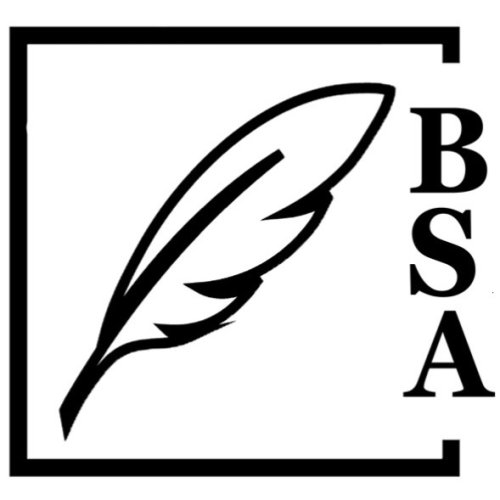Best Water Law Lawyers in Skopje
Share your needs with us, get contacted by law firms.
Free. Takes 2 min.
List of the best lawyers in Skopje, North Macedonia
About Water Law in Skopje, North Macedonia
Water Law in Skopje, North Macedonia, refers to the set of legal regulations and principles governing the use, management, protection, and distribution of water resources in the region. Water resources, including rivers, lakes, groundwater, and public water utilities, are considered natural assets of public interest and are regulated to prevent misuse, ensure sustainable usage, and protect the environment. Water Law governs rights and obligations concerning water extraction, pollution control, wastewater discharges, irrigation, flood management, and the supply of clean drinking water for individuals and businesses.
Why You May Need a Lawyer
People often seek legal advice in Water Law due to its complexity and the wide range of issues it covers. Here are some common situations where consulting a lawyer is advisable:
- Disputes over water use or access between neighboring properties or businesses
- Applications or objections concerning water extraction permits or licenses
- Challenges related to pollution, contamination complaints or environmental damage claims
- Issues involving the construction of infrastructure such as wells, boreholes, or reservoirs
- Violations or compliance problems with local water regulations
- Water service interruptions, billing disputes, or quality concerns with municipal suppliers
- Concerns related to flood prevention, drainage rights, or construction near water bodies
- Industrial or agricultural water usage and discharges
Local Laws Overview
The Republic of North Macedonia, including its capital Skopje, regulates water resources through the Law on Waters (Zakon za vodi) and related municipal acts. The key legal principles are:
- Water resources are state property and their use is governed in the public interest
- Permits are required for the extraction, usage, or discharge of water beyond basic personal needs
- Discharging wastewater into public water bodies requires compliance with environmental standards and permits
- Flood risk management and maintenance of water infrastructure are subject to government oversight and local collaboration
- Specific regulations apply to the construction and maintenance of wells, dams, and water supply networks
- Pollution of water resources is strictly regulated and penalties apply for violations
- Regional water management agencies and municipal bodies enforce the Law on Waters
- Landowners adjoining water bodies have rights and responsibilities regarding water access, usage, and protection
Frequently Asked Questions
What is considered public water in Skopje, North Macedonia?
Public water includes all natural and artificial surface and underground waters, such as rivers, lakes, reservoirs, and communal water supply systems, regulated by the state or municipal authorities.
Do I need a permit to drill a well on my property?
Yes. Individuals or businesses must obtain prior approval and permits from the relevant authorities before drilling a well to ensure water quality and prevent adverse effects on groundwater levels.
What actions are required if I discover water pollution?
You have a duty to report water pollution instances to the relevant environmental and water management agencies. They will investigate, take remedial action, and may impose penalties if violations are confirmed.
Can I use water from a nearby river for irrigation?
Any use exceeding minor personal needs requires authorization. Using river water for irrigation typically requires a formal permit and compliance with specific usage limits and environmental protection conditions.
Who is responsible for maintaining watercourses and flood protection structures?
Maintenance responsibility may fall on national or municipal authorities, but adjacent landowners also have duties, particularly in keeping drainage ditches and flood defenses on their property in good order.
How can I contest a penalty or fine related to water usage?
You may appeal penalties issued by water or environmental agencies through administrative procedures. A lawyer can help you prepare your appeal and represent your interests before authorities or in court.
Are there restrictions on building near water bodies?
Yes. Construction near rivers, lakes, or reservoirs is regulated to prevent pollution, flooding, and ecological damage. Permits and compliance with zoning laws are necessary before beginning any construction.
What are my rights if my neighbor’s activities affect my water supply?
If your water rights are infringed or your supply is contaminated, you can seek remediation through municipal authorities or the courts. Legal representation is helpful in negotiating solutions and protecting your interests.
How is wastewater regulated in Skopje?
Discharge of wastewater into public systems or natural waters requires permits and must meet environmental standards. Violations can lead to penalties, operational restrictions, and requirements for remediation.
Can businesses apply for special water usage rights?
Yes. Businesses may apply for water use permits for industrial, agricultural, or service needs. Applications must include technical documentation and compliance with water management and environmental policies.
Additional Resources
For more information or assistance with Water Law issues in Skopje, the following resources may be helpful:
- Ministry of Environment and Physical Planning - Water Department (Министерство за животна средина и просторно планирање)
- Skopje City Water Supply and Sewerage Utility (Водовод и канализација - Скопје)
- State Environmental Inspectorate (Државен инспекторат за животна средина)
- Association of Water Utility Companies of North Macedonia
- Local environmental and consumer protection NGOs
Next Steps
If you believe you need legal assistance regarding Water Law in Skopje, consider the following steps:
- Document your issue or concern, including any relevant permits, correspondence, or evidence
- Consult publicly available resources or speak with the relevant government agency for initial guidance
- Contact a lawyer who specializes in environmental or water law for professional advice
- Prepare a list of questions and desired outcomes to efficiently discuss your case
- Follow your lawyer’s guidance to pursue applications, remedies, or disputes through the appropriate administrative or judicial channels
Lawzana helps you find the best lawyers and law firms in Skopje through a curated and pre-screened list of qualified legal professionals. Our platform offers rankings and detailed profiles of attorneys and law firms, allowing you to compare based on practice areas, including Water Law, experience, and client feedback.
Each profile includes a description of the firm's areas of practice, client reviews, team members and partners, year of establishment, spoken languages, office locations, contact information, social media presence, and any published articles or resources. Most firms on our platform speak English and are experienced in both local and international legal matters.
Get a quote from top-rated law firms in Skopje, North Macedonia — quickly, securely, and without unnecessary hassle.
Disclaimer:
The information provided on this page is for general informational purposes only and does not constitute legal advice. While we strive to ensure the accuracy and relevance of the content, legal information may change over time, and interpretations of the law can vary. You should always consult with a qualified legal professional for advice specific to your situation.
We disclaim all liability for actions taken or not taken based on the content of this page. If you believe any information is incorrect or outdated, please contact us, and we will review and update it where appropriate.









